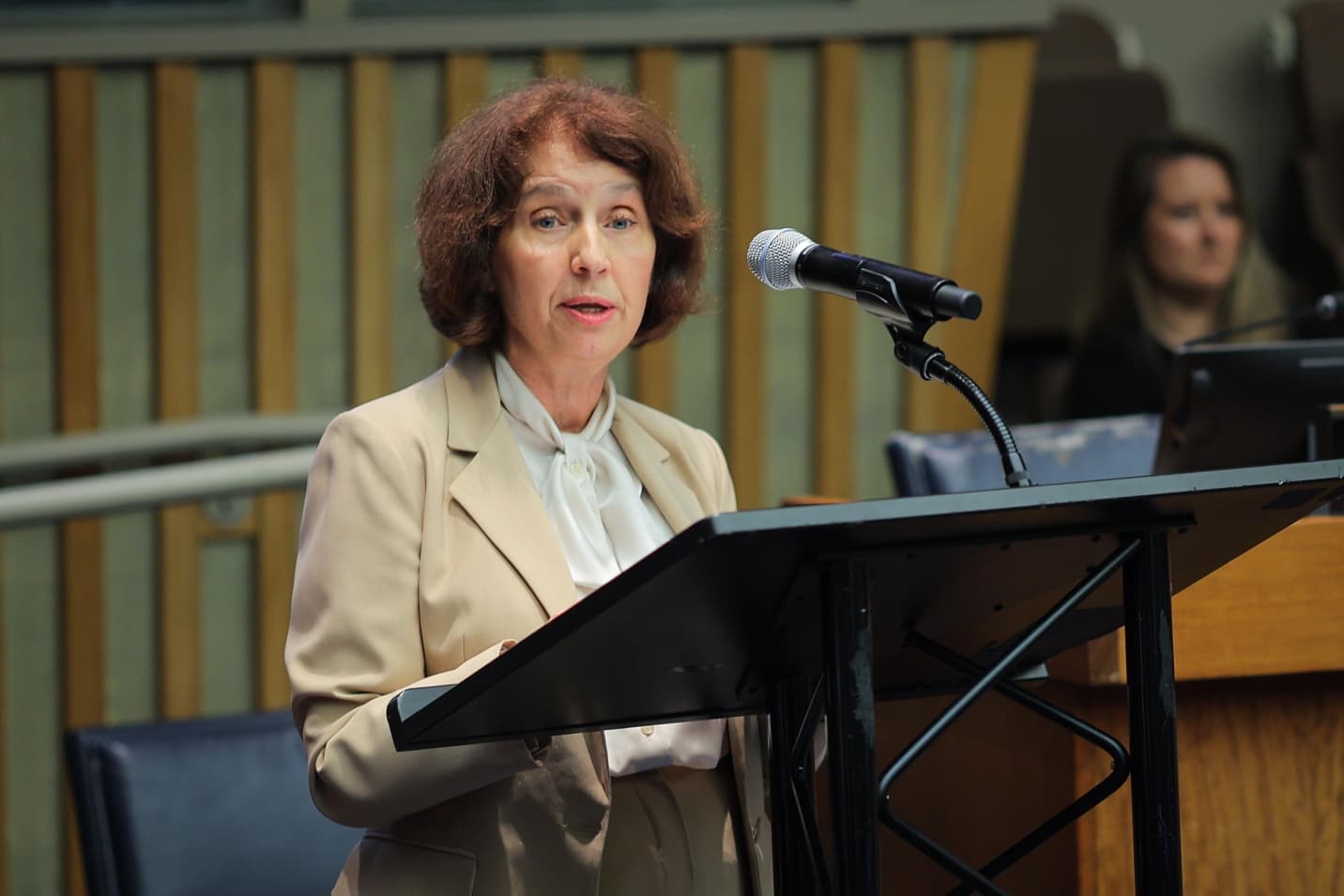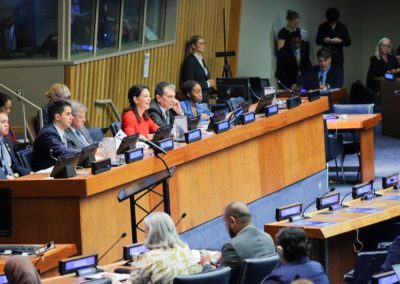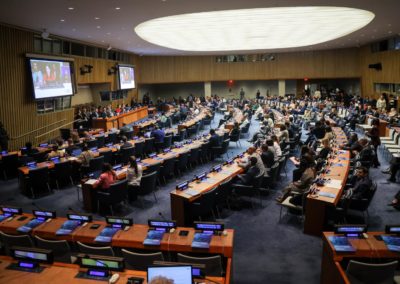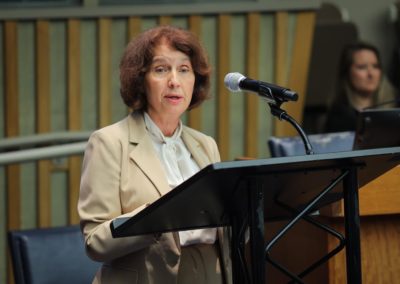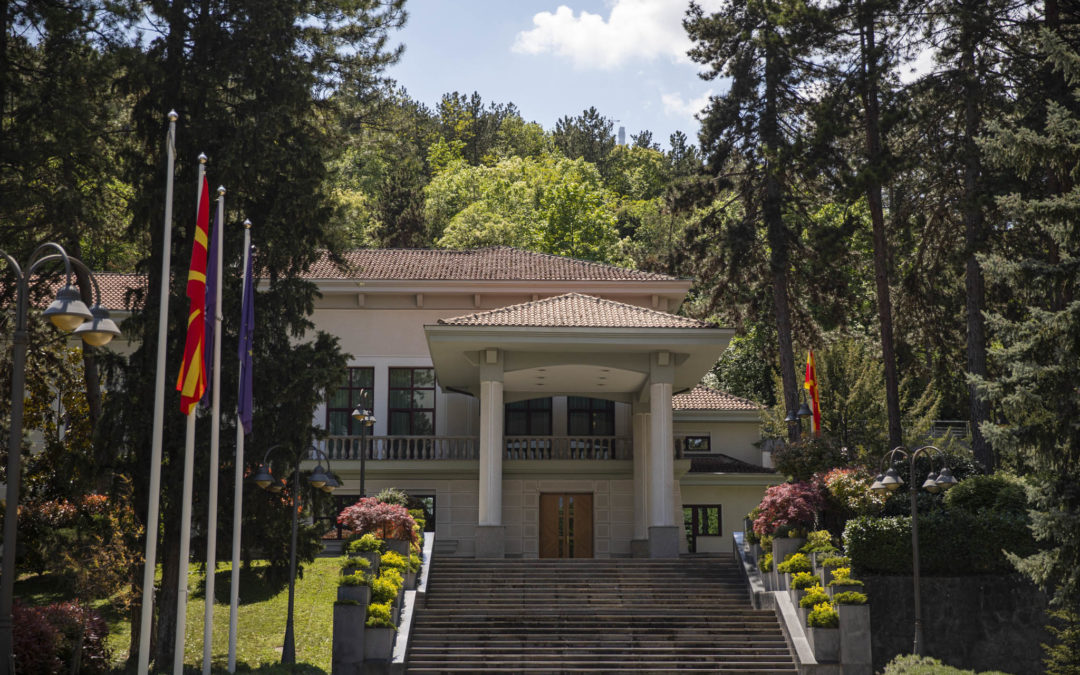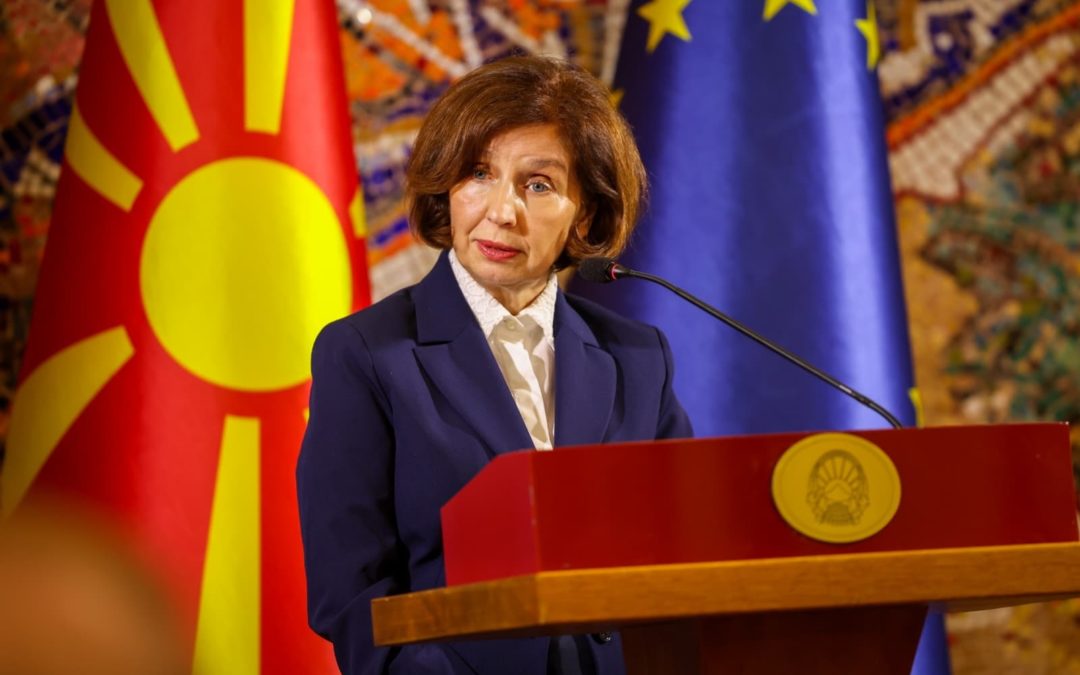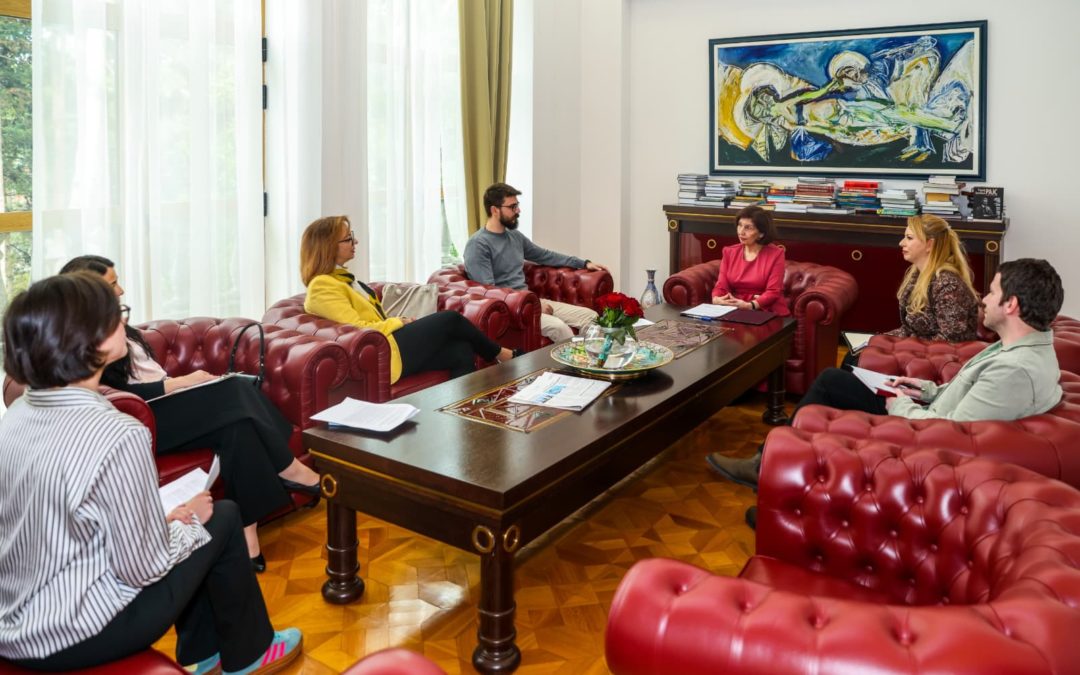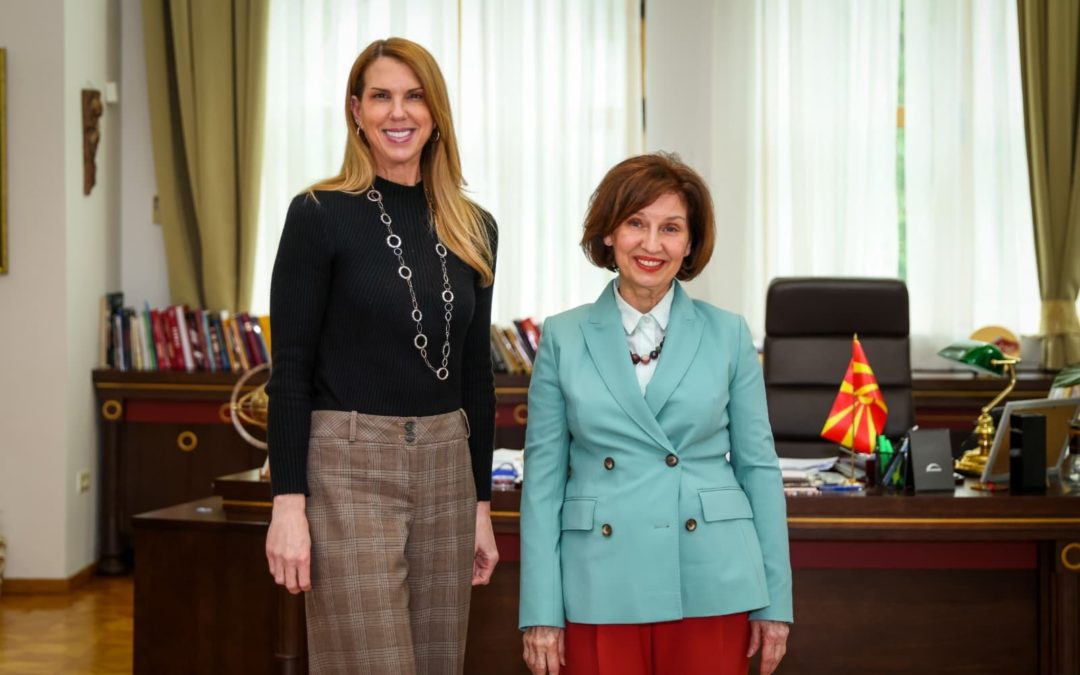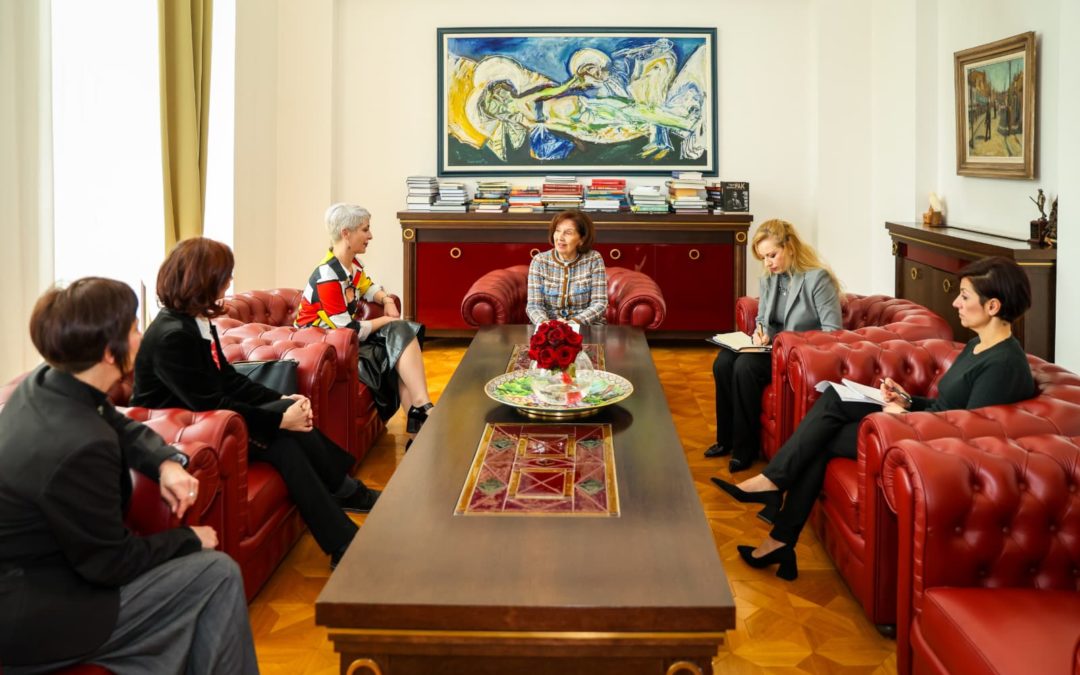President Gordana Siljanovska-Davkova addressed the session dedicated to the 30th anniversary of the World Programme for Youth, which was held within the framework of the 80th UN General Assembly.
She pointed out the need for young generations to gain a deserved place in shaping the future of the United Nations and emphasized the importance of the Youth2030 strategy as a basis for active, and not just symbolic, involvement of young people in UN reforms at all levels.
The participants of the session spoke on topics dedicated to the role of youth in global development.
The discussion focused on the “World Programme of Action for Youth: Accelerating Global Progress through Intergenerational Cooperation”, as well as “Advancing the Implementation of the World Programme of Action for Youth to Leave No One Behind”.
Below is the integral address of President Siljanovska-Davkova:
Honorable President of the United Nations General Assembly, Ms. Annalena Baerbock,
Honorable Assistant Secretary-General for Youth Affairs, Mr. Felipe Paullier,
Dear young people,
It is a privilege to be with you today, as we mark the 80th anniversary of the United Nations and the 30th anniversary of the World Program of Action for Youth.
In my youth, I was intrigued by the philosophical lyrics of Pink Floyd, especially the song “Another Brick in the Wall”, in which they reject an education centered around thought control and ask teachers to leave the kids alone. When I became a University Professor, I frequently had this subversive song on my mind. That is why, today, I am not here to lecture you, but to be inspired by you, young people. Through history, your peers were not afraid to speak up, to challenge authorities, to reject dogmatism and fight for ideals, sometimes at the cost of their own lives.
Recall the student protests in Paris in 1968, the Prague Spring against the Warsaw Pact tanks in 1969, the campus protests against the Vietnam War. Recall the student defiance at Tiananmen Square and the fall of the Berlin Wall in 1989. Even today, young people protest against the war in Ukraine and the conflicts in the Middle East, but also against ecocides and femicides, climate change, and social injustices.
As courageous critics, rebels with a cause, seekers of truth, ambassadors of the future, you, young people, have always been the bearers of change.
And yet, young people found themselves left out of the decisions that directly impacted them. No country, no region, can progress if it neglects its young people. That is why the UN adopted the World Programme of Action for Youth. Much has been done, such as the establishment of the United Nations Youth Office, with an Assistant Secretary-General for Youth Affairs. The Pact for the Future and the Declaration on Future Generations. But, also, much remains to be done.
I come from a small European country. For 20 years, we have been waiting to become a member of the European Union. Many of your Macedonian peers are tired of waiting for the European future, so they are leaving the country. This applies to most countries of the Western Balkans. For small states like ours, the statistics are not abstractions. For things to change, youth engagement must not be symbolic, but rather a substantial participation in the decision-making processes. For my part, I established a Council for youth, and have nominated young people in presidential commissions and bodies.
Young generations have a right to a renewed, updated UN Charter, with reformed and strong United Nations that will enable them to live in times of peace among nations, but also peace with nature.
That is why the United Nations Youth Strategy, Youth2030, is so vital. It ensures that across all pillars of our work, peace and security, human rights and sustainable development, young people are not bystanders, but partners. This implies three things.
First, young people must be part of UN reform at every level. This means securing permanent seats in national delegations, creating formal advisory bodies, and giving them decision-making roles in key areas such as Security Council reform, peacebuilding architecture and digital governance.
Second, to be an ethical compass. Youth engagement must not be symbolic. It must bring accountability, ensuring that both empty promises and cynical inaction are avoided.
Third, intergenerational partnership. Reform must bring generations together. Older leaders bring experience, while younger ones bring vision. Together, they can steer multilateralism from paralysis to action.
You have the privilege, but also the responsibility, to be the bridge between the present and the future. Without your favorite word, “why?”, there is no progress. Without your doubt in authority, there is no truth. As you move societies, you can move the world, because you are adorned with intellectual curiosity and passion, without which there can be no reform.
Thank you.

